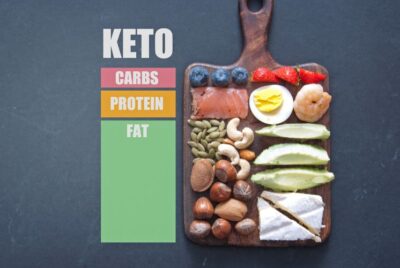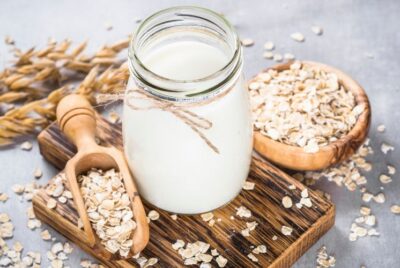Is Squash Keto? A Deep Dive into Low-Carb Vegetables
Embarking on a ketogenic lifestyle has led me to evaluate various foods and their compatibility with a low-carb diet. Squash, with its variety and versatility, often comes up in discussions about keto-friendly vegetables. As someone who enjoys the rich flavors and nutritional benefits of squash, I’ve taken a closer look at whether different types of squash can fit into a ketogenic diet. In this article, I will share insights into the carb content of various squashes and how to include them in a keto diet effectively.
Why Carbs in Vegetables Matter on Keto
The ketogenic diet is a high-fat, low-carb lifestyle that puts your body into a state of ketosis, where it burns fat for fuel instead of carbohydrates. To maintain this fat-burning mode, most keto followers aim for 20–50 grams of net carbs per day.
While veggies are packed with nutrients, not all are created equal when it comes to carbs. Some, like leafy greens, are naturally low in carbs, while others, like starchy squash, can add up fast.
Understanding Squash and Its Varieties
Squash is categorized into two main types: summer squash and winter squash. Common summer squashes include zucchini and yellow squash, which are generally lower in carbs and can be eaten raw or cooked. Winter squashes, such as butternut, acorn, and spaghetti squash, are typically higher in carbs and are usually cooked to bring out their flavors.
Nutritional Profile of Popular Squashes
To determine if squash is keto-friendly, we need to look at the net carbs in each type. Here’s a breakdown of the carb content in common squashes per 100 grams (about 3.5 ounces):
- Zucchini (Summer Squash): 3 grams of total carbs, 2 grams of net carbs.
- Yellow Squash (Summer Squash): 3 grams of total carbs, 2 grams of net carbs.
- Spaghetti Squash (Winter Squash): 7 grams of total carbs, 5.5 grams of net carbs.
- Acorn Squash (Winter Squash): 15 grams of total carbs, 12 grams of net carbs.
- Butternut Squash (Winter Squash): 12 grams of total carbs, 10 grams of net carbs.
Is Squash Keto-Friendly?
Based on their carb content, summer squashes like zucchini and yellow squash are more keto-friendly due to their low net carb counts. They can be incorporated into a ketogenic diet without much concern. Winter squashes, while higher in carbs, can still be included in moderation. Portion control is key when it comes to fitting these into a keto diet, particularly for stricter carb limits.
The Health Benefits of Squash
While squash is often debated in the keto community due to its carb content, it offers a range of health benefits that make it worth considering in moderation—especially for those following keto for beginners or flexible low-carb lifestyles.
1. Rich in Vitamins and Antioxidants
Squash varieties like zucchini, yellow squash, and spaghetti squash are packed with vitamins A, C, and B6, as well as antioxidants that help fight inflammation and support immune health. These nutrients are essential for anyone focusing on keto and mental health or looking to reduce oxidative stress on a low-carb plan.
2. High in Fiber
Fiber plays a crucial role in digestive health, and squash offers a natural source of it. Including moderate amounts of squash in your keto meal prep can help combat keto constipation, support gut health, and promote satiety.
3. Supports Eye Health
Squash is loaded with lutein and zeaxanthin, compounds known to promote eye health, which is especially beneficial for long-term well-being—whether you’re doing lazy keto or a strict version.
4. Low in Calories, Moderate in Carbs
While not carb-free, most squashes are relatively low in calories and can fit into a moderate-carb or cyclical keto approach. For example, zucchini contains only about 3g net carbs per 100g, making it a keto-friendly choice when portioned correctly.
5. Versatile for Keto Cooking
From zoodles (zucchini noodles) to stuffed spaghetti squash, the culinary versatility of squash makes it a great ingredient for keto-friendly recipes that feel hearty and satisfying without loading up on carbs.
How to Include Squash in Your Keto Diet
1. Choose the Right Type: Opt for summer squashes for regular use, and enjoy winter squashes occasionally, keeping an eye on portion sizes.
2. Creative Cooking Methods: Experiment with various cooking methods like roasting, sautéing, or spiralizing to add diversity to your keto meals without adding extra carbs.
3. Use as a Low-Carb Alternative: Spaghetti squash makes an excellent substitute for pasta. Top it with keto-friendly sauces like alfredo or pesto for a satisfying meal.
Recipe Idea: Keto-Friendly Spaghetti Squash Alfredo
Ingredients:
- 1 medium spaghetti squash
- 1 tablespoon olive oil
- Salt and pepper to taste
- 1 cup heavy cream
- 1 cup grated Parmesan cheese
- 2 cloves garlic, minced
- 2 tablespoons butter
Instructions:
- Preheat the oven to 400°F (200°C).
- Prepare the Squash: Cut the spaghetti squash in half lengthwise and remove the seeds. Drizzle with olive oil and season with salt and pepper. Place cut-side down on a baking sheet and roast for 40 minutes, or until tender.
- Make the Alfredo Sauce: While the squash is cooking, heat butter and garlic in a saucepan over medium heat. Add heavy cream and bring to a simmer. Reduce heat and stir in Parmesan cheese until melted and smooth.
- Assemble the Dish: Use a fork to scrape the squash into strands, then mix with the Alfredo sauce. Serve warm.
Conclusion: Squash as a Versatile Component of a Keto Diet
While not all types of squash are equally low in carbs, they can all be included in a ketogenic diet with careful planning. Summer squashes are an easy addition due to their low carb content, while winter squashes require more mindful consumption. By understanding the carb content and portion sizes, squash can be a nutritious and tasty part of your keto lifestyle, providing variety and vital nutrients to your diet.
Frequently Asked Questions: Is Squash Keto?
1. Is squash allowed on the keto diet?
Yes, squash can be enjoyed on a keto diet, but it depends on the type and portion size. Lower-carb varieties like zucchini and yellow squash are more keto-friendly, while starchy types like butternut or acorn squash should be consumed in moderation.
2. Which types of squash are best for beginners on keto?
For those following the keto diet for beginners, zucchini, yellow squash, and spaghetti squash are excellent choices. They’re lower in carbs and versatile for meal prep, making them perfect for lazy keto meals or quick keto lunch ideas.
3. How can I incorporate squash into my keto meals?
You can spiralize zucchini into zoodles, roast spaghetti squash as a pasta replacement, or sauté yellow squash with olive oil and herbs. They pair well with keto-friendly ingredients like cheese, eggs, and protein. Try them in a keto breakfast burrito or alongside a keto buffalo chicken dip.
4. Why is squash sometimes considered controversial in the keto community?
Because certain squashes (like butternut and kabocha) have higher net carbs, they can impact ketosis if eaten in large quantities. Tracking carbs and understanding your macros is key, especially when you’re dealing with keto bloating or gaining weight on keto.
5. What are some benefits of squash on keto?
Squash provides fiber, antioxidants, and key nutrients like Vitamin A and C. It can help relieve keto constipation, support immunity, and aid in digestion—all without spiking your carb count if eaten mindfully. It’s a useful ingredient whether you’re doing vegetarian keto, keto 2.0, or simply trying to find low-carb veggies that taste great.




